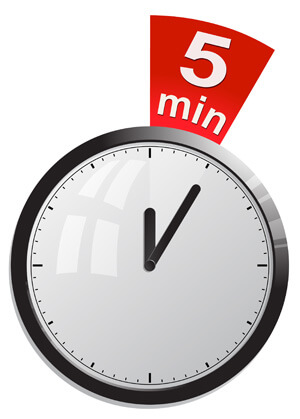Free GRE Events This Week: September 9- September 15
Here are the free GRE events we’re holding this week (All times local unless otherwise specified):
9/9/13– Chicago, IL- Free Trial Class– 6:30PM – 9:30PM
9/9/13– Washington, DC- Free Trial Class– 6:30PM – 9:30PM
Looking for more free events? Check out our Free Events Listing Page.
Five Minute Math
 I definitely come from the procrastinate-and-then-cram-the-night-before-or-even-the-morning-of-the-test school of studying. It’s how I survived high school. And college. And law school. And grad school. And work. Okay, it’s how I do almost everything. But when it comes to preparing for a test like the GRE, studying in smaller sessions over a longer period of time IS better. You give your brain a chance to dredge up and sort and apply the information without any cues from the material before, which is what the real exam is like.
I definitely come from the procrastinate-and-then-cram-the-night-before-or-even-the-morning-of-the-test school of studying. It’s how I survived high school. And college. And law school. And grad school. And work. Okay, it’s how I do almost everything. But when it comes to preparing for a test like the GRE, studying in smaller sessions over a longer period of time IS better. You give your brain a chance to dredge up and sort and apply the information without any cues from the material before, which is what the real exam is like.
It’s pretty easy to think of ways to study vocab for five minutes. As long as you have the words with you, working on one or two for a couple minutes is no problem. (By the way, you should definitely start doing that if you aren’t already.) But how do you improve your math skills in five minutes?
Do One Problem
Students fight me on this, saying that it’s not worth getting started if you don’t have time to study a whole bunch. I’m sorry to say, they’re wrong. Keep a set of problems with you, whether you print them out or just tear them out of your books. (Sacrilege! I know! But the point of those books is to up your score, not to look beautiful on the shelf.) In five minutes, you can do a problem and look over the answer. But the benefits don’t stop there, because when you’ve done only one problem, your brain has time to process it and think about it. You’ll be working on it still, even when you aren’t trying to. It sticks with you in a different way. Because you’ve done only one problem, you don’t get to rely on anything that came before it to prop you up – you have to really know what you’re doing.
Review One Problem
Sometimes during a study session there will be a few problems that really bug you. Maybe that’s because you thought you should have gotten them right. Maybe it’s because you still don’t understand the explanation. Maybe they seem to contradict something you thought you learned in another problem.
These are the problems that are perfect for their own five-minute review session. Look them up on a forum and read some explanations and conversation. Discuss them with a friend. Give them a try on your own again. Try to explain the problem to yourself (or someone else). Whatever you do, coming back to the problem on its own with a fresh pair of eyes may help really cement something into place that was loose before.
Practice Your Arithmetic
Maybe your days are more exciting than mine, but I bet you still find yourself sitting around sometimes. Whether you’re waiting for a meeting to start, waiting for a meeting to end, waiting for your dinner to cook, or just watching TV, there is probably a five-minute period in the day where your mind wanders. (Think of how many times you check your phone in a day. What if you spent all that time doing math?)
Just practicing your arithmetic really pays off. I’m not a phone person, but I’m sure there are apps for your phone that let you do just that. Or, get out the old paper and pen. Filling in your multiplication tables, listing out prime numbers, practicing division and multiplication shortcuts, and manipulating fractions can all help you get more comfortable and faster with numbers. I know the exam has a calculator, but a comfort and facility with numbers will help you recognize patterns and shortcuts.
Drill Your Rules
No calculator can overcome a lack of knowing the mathematical rules. Knowing the rules doesn’t take genius abilities or even great reasoning powers; it just takes practice. So if you aren’t rock solid comfortable on the rules of fractions, exponents, triangles, and the like, five minutes is a great time to practice them in drill form. Memorizing the exponent rules is nice, but using them enough that you know how to use them when they show up is even better.
Estimate
The Math Beast Challenge Problem of the Week – September 2, 2013
.png) Each week, we post a new GRE Challenge Problem for you to attempt. If you submit the correct answer, you will be entered into that week’s drawing for two free Manhattan Prep GRE Strategy Guides.
Each week, we post a new GRE Challenge Problem for you to attempt. If you submit the correct answer, you will be entered into that week’s drawing for two free Manhattan Prep GRE Strategy Guides.How many integers between 1 and 300, inclusive, can be expressed as xy, where x and y are integers greater than 1?
See the answer choices and submit your pick over on our Challenge Problem page.
